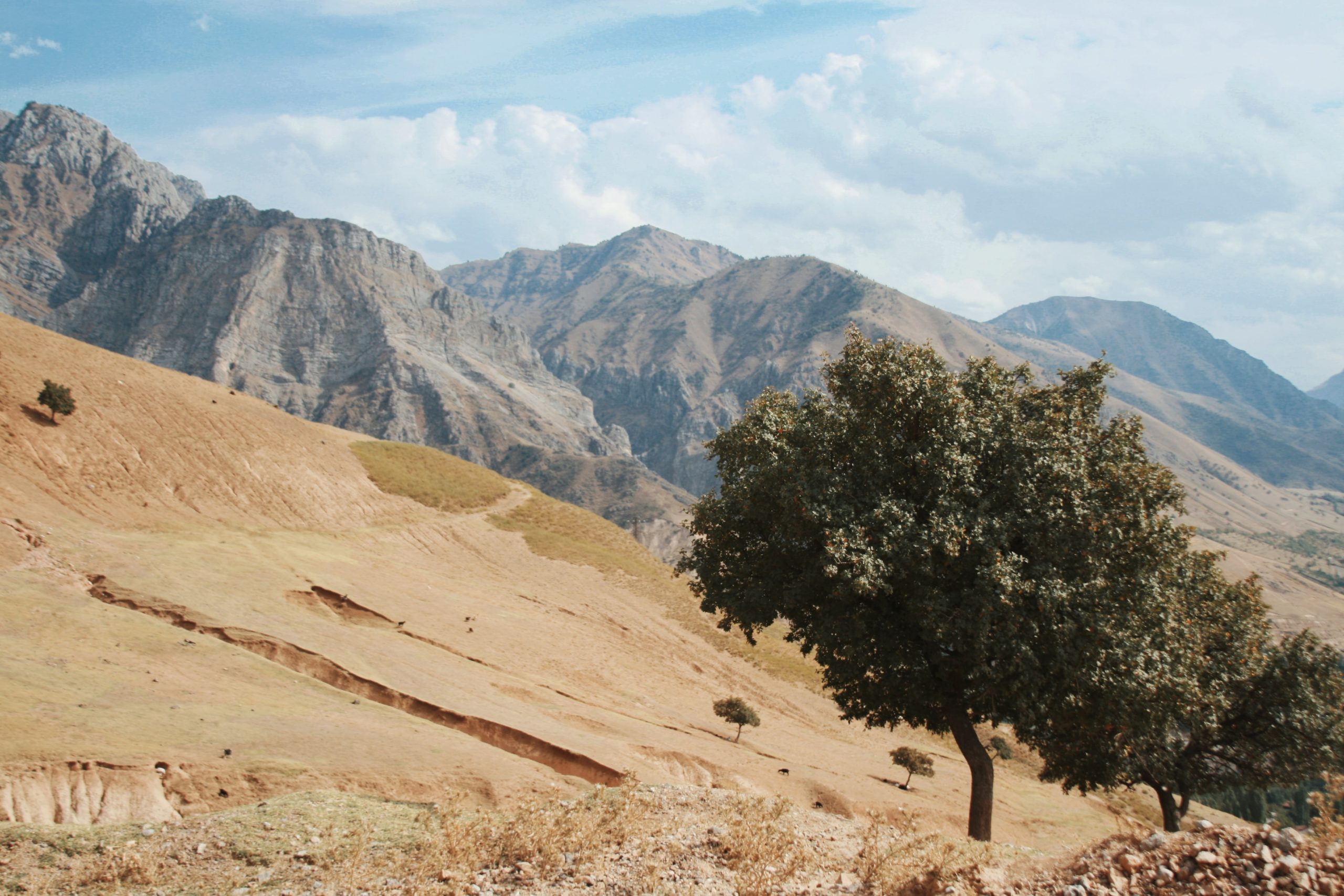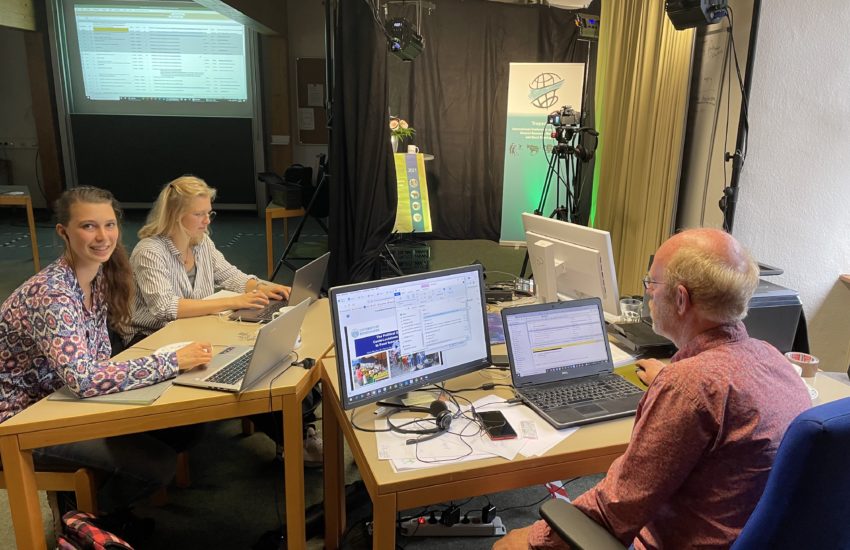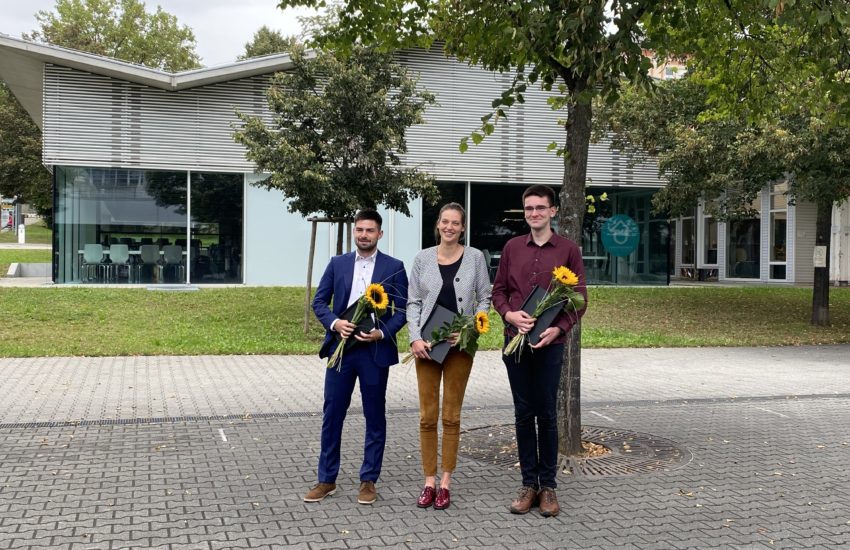Going With the Flow: Peer Pressure’s Effects on Drought Insurance Purchases in Uzbekistan
Uzbek farmers are no strangers to drought. The double-landlocked Central Asian country was the center of an ecological disaster long before the climate crisis took center stage in the agricultural sector. Starting in the 1960s, the Soviet Union diverted river water to irrigate cotton fields, eventually draining the Aral Sea to just a sliver of its original size. The fertilizer runoff, combined with the increased salinity in the water, turned the remaining sea into an almost inhospitable brine.
Farmers are doing what they can to financially protect their investments against drought. Agriculture is a risky industry due to its long investment turnaround time and heavy reliance on good weather. A single natural disaster or bad season can begin a downward economic spiral for farmers in communities already in financial difficulties. Farmers often turn to their peers to determine the risk management system to use, and traditional insurance plans are often difficult for smallholders to access.
Index insurance works by paying out benefits to farmers if an index (ex. rainfall, earthquake magnitude) falls within a pre-determined range. These ranges are based on local historical data and work to buffer farmers from environmental risks. Farmers may be more likely to implement index insurance if a trusted member of the community has vouched for its usage.
Laura Moritz answered a few questions from the Tropentag student reporter team about her latest research into Innovative Index insurance and the effects of peer influence on provider distrust. She presented during her poster “Sustainable Finances for Green Investments: Findings from Experimental Adoption of Innovative Index Insurance in Uzbekistan” for Agro-Ecosociology – Implications for Sustainability.
Part of the Tropentag Blog’s goal is to make science accessible to non-scientists. In a few words, how would you describe your research to the average person who may not be familiar with agricultural economic policies in an Uzbek context?
As climate change is affecting farmers in the developing world in particular, climate adaptions are vital there. One promising tool is innovative index insurance but its demand is still low. By looking at social and non-social effects, I am exploring how one’s peer influences individual innovation adoption and find very interesting results.
Uzbekistan has a history of ecological disasters as a result of government intervention in the agricultural sector (e.g. the Aral Sea disaster). Do you think this plays a role in levels of provider trust?
Analogies can be observed in the insurance context. Nowadays, agricultural insurance insures roughly 30 percent of all crops, serves as a credit liability and finances 50 percent of the rural bank credits. What sounds promising here, actually contains great challenges for utilizing its full potential: insurance premiums are too expensive and insurance is not offered in years with systematic drought predictions.
This creates provider distrust, which needs to be overcome when offering another insurance concept that is systematically different in its properties but may be perceived similar from the customer perspective. Trust-building activities prior product launch are essential for dissemination. Similar applies to the acceptance of government interactions after suffering/observing adverse outcomes as a consequence of state inference.
Did your research uncover anything unexpected?
In a previous study conducted in Kyrgyzstan, I found that the presence of the insurer during the experimental implementation hampers index insurance adoption. This confirms that ex-ante trust-enhancing activities are vital in innovation behavior.
In the Uzbekistan study, I identify that farmers have a higher willingness to adopt when their bigger surrounding also adopts simultaneously. Under risk, farmers learn from their peer about acceptable and trusted risk solutions. Interestingly, this effect is higher than having more insurance affine neighbors that they can observe in more detail. Thus, it requires a critical mass to accelerate adoption.
What led your team to conduct research in Uzbekistan? Are there efforts in other countries to install the same Innovative Index insurance plans?
Uzbekistan is an interesting country to examine in this context. This is due to its high predictions for an intensive accumulation of drought events in the future, the importance of agriculture on the labor market (approx. 20% of total work force) and its still on-going transition process from the socialist to the capitalist economy. Thus, agricultural development in transition economies is the research focus of the institute I am working at (Leibniz Institute of Agricultural Development in Transition Economies; IAMO). Having a great pool of local expertise there, gives a network structure that facilitates local implementation. Due to similar characteristics, we also have index insurance plans in Kyrgyzstan.
In 1-2 words, what does Tropentag mean for you?
Constructive exchange



